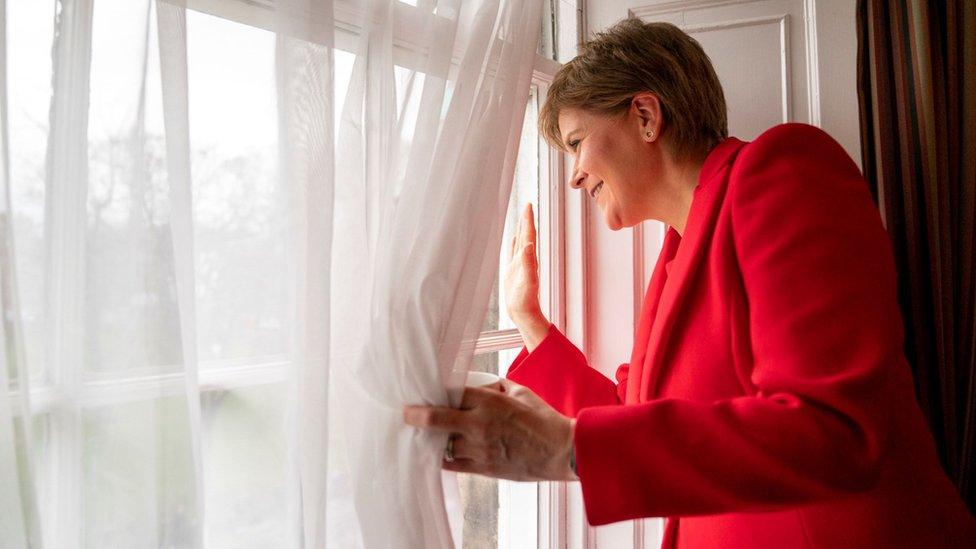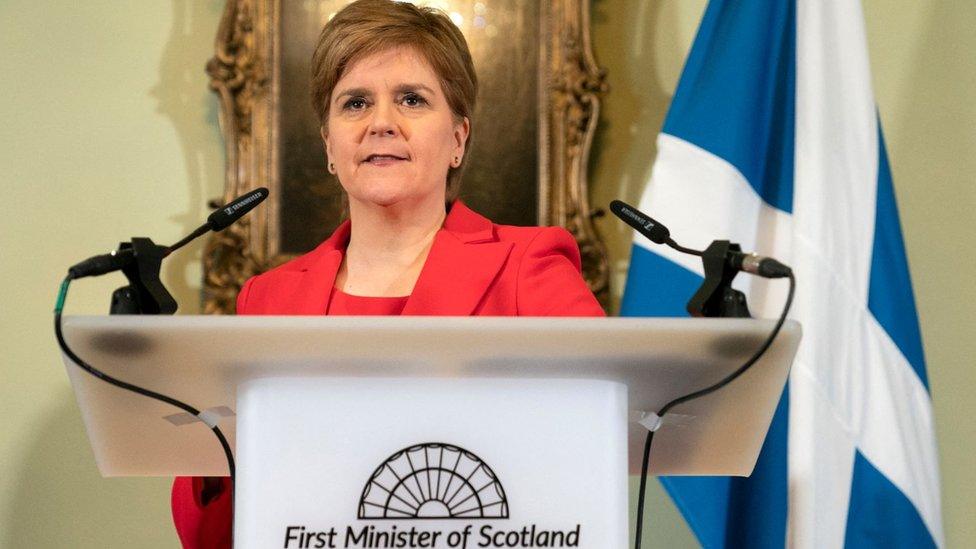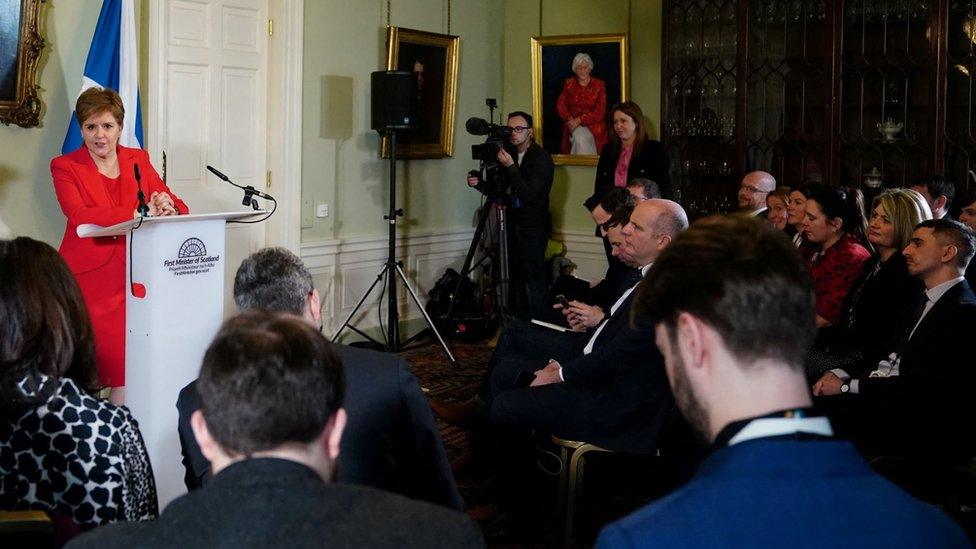End of an era as Nicola Sturgeon waves farewell
- Published

Nicola Sturgeon waves from the window of Bute House after her statement
Nicola Sturgeon's resignation as first minister is a huge moment in Scottish and indeed UK politics. The end of an era.
She has been a Holyrood fixture since the beginning and has served in government continuously, as either first or deputy first minister, for nearly 16 years.
It is an epic shift for any politician and it has taken its toll.
While Ms Sturgeon has insisted her decision is not a response to immediate political pressures, there are plenty of those.
These include huge backlogs in the NHS, a teachers strike, and rows over the management of transgender prisoners and the introduction of a new bottle deposit scheme.
There is also deadlock over independence which the first minister has obviously concluded that she cannot break.
If she thought for a second that she could, Nicola Sturgeon would not to be standing down.
It will be for her successor to deal with these challenges. While there are no candidates yet, Finance Secretary Kate Forbes (who is on maternity leave) and Constitution Secretary Angus Robertson are among those who might be giving it serious consideration.
The SNP's ruling body must now decide a timetable for her replacement. A leadership contest is likely to take six to eight weeks.
That raises a big question about the SNP conference being held on 19 March to decide the party's independence strategy and whether it backs the use of a Westminster or Holyrood election as a substitute referendum.

Are they really going to make that decision as a party without knowing who their next leader will be and whether or not they agree with that strategy?
New leadership could mean new thinking on independence and much else besides. It will also mean some new ministers and advisers, and does not necessarily guarantee the continuation of the SNP's power-sharing deal with the Greens.
Ms Sturgeon's resignation statement was reflective and emotional at times. The top job in Scottish politics is a big gig to give up, especially when your ultimate mission - Scottish independence - has not been accomplished.
The announcement was also a surprise.
While there has been speculation about her future for some time and I was convinced she would not serve a full term, the next UK general election seemed the most likely point of departure.
We now know it will be much sooner than that - and it was the BBC who broke the story.
First ministers don't tend to give big news conferences when Holyrood is in recess.

There have been exceptions, especially during Covid, but there was no expectation of a big announcement during this February break.
So when I heard Nicola Sturgeon was calling a news conference for 11 o'clock, my instinct was that this could be something big.
When I asked Scottish government sources, speculatively, if she was resigning, no-one would - or perhaps could - give a clear answer.
I then phoned almost everyone I could think of who might be in the know, to try and piece together the nature of the announcement.
Not everyone answers in these moments and those who do tend to speak in code, but the message was crystal clear - Scotland's longest serving first minister had decided to call it a day.
As she made her statement in Bute House, her official residence in Edinburgh, the media and scores of members of the public - both critics and supporters - gathered outside the building.
At one point, after her statement, she came to an upper window in the Georgian mansion to greet them - a wave that also serves as the first minister's farewell.